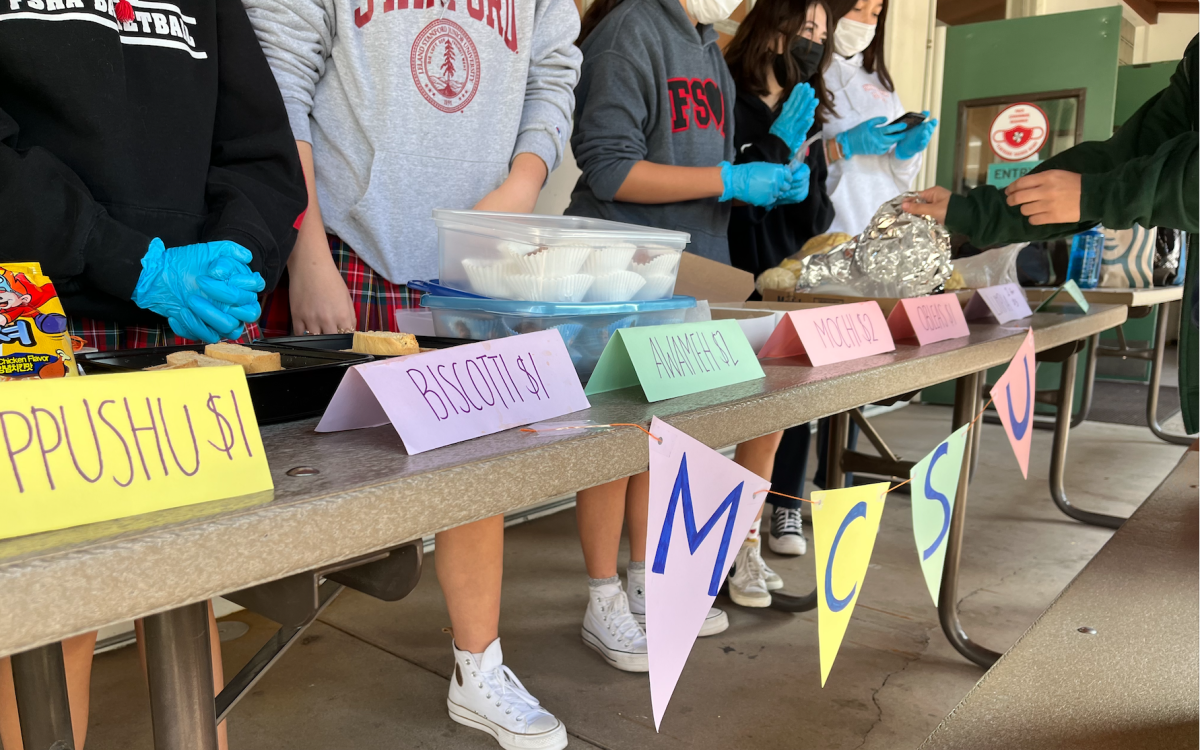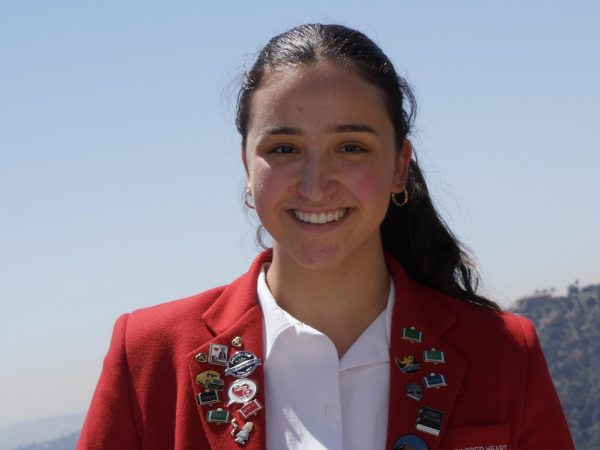When senior Fifi Joyner encountered Flintridge Sacred Heart Academy’s affinity group offerings as a freshman, she was unsure if she fit into any of the represented identities. As a half-Latina, half-White student, Joyner feels that she does not belong to just one racial or ethnic category, although she strongly identifies with her Latina heritage. This prompted her, along with two other mixed-race students, to create an affinity group for those who share the struggle of categorizing themselves, want to celebrate their mixed background, or identify as multicultural: the Multicultural Student Union (MCSU).
Originating at a time when affinity groups operated like clubs, the Multicultural Student Union welcomed anyone interested in joining.
Although FSHA’s affinity group structure has shifted since then, this open membership policy remains in place today.
“I accept anyone as long as you’re supportive of what our message is… whether you’re mixed, you’re not [or] you’re an ally of support,” Joyner said.
So what changed? This year, affinity groups have been designated as unique from other on-campus student organizations; they have “facilitators” rather than moderators, designated lesson plans and meeting times and their members, other than the QSA which invites allies, belong to one specific protected identity. This caveat for membership is centered around the original purpose of affinity groups: the formation of a safe space.
“It’s a place where you can talk about something you’re thinking about or struggling with and you don’t really have to explain the background, because maybe the people in that group understand already,” Ms. Cassandra Gonzales, Director of Diversity, Equity and Inclusion (DEI), said.
This protected space that affinity groups provide proves valuable to students here on the Hill.
“I know there is a community I can always go back to,” Bri Barragan, senior and two-year member of the MCSU, said.
In addition to being protected spaces, affinity groups also foster inclusive environments, allowing students to choose what groups to be a part of based on their understanding of their identities.
“We’re not going to question people’s identities. If they go to an affinity group, that means they identify that way… this is not about gatekeeping or trying to keep people out,” Ms. Gonzales said.
Although other affinity groups may have a clearer standard for membership, like belonging to one specific racial or ethnic identity, the line between who is multicultural and who is not is more blurry. While some believe the word “multicultural” implies belonging to more than one racial or ethnic group, others argue for a broader definition.
“Culture is such a big category to begin with, and how we define culture could be anything as big as the world and anything as small as your friend group,” Dr. Kristen Besinque, French teacher, said.
As a facilitator for the MCSU, Dr. Besinque recently led a DEI lesson that embraced this comprehensive understanding of multiculturalism, in which students identified the different cultures they belonged to and discussed common stereotypes assigned to those categories. While some students talked about their racial or ethnic identities, others discussed stereotypes placed on them based on religion, hobbies or appearance.
“I think that this is the age, around high school, where people, girls especially, are coming into what it means to have an identity and have such a multi-faceted identity,” Dr. Besinque said.
A newer affinity group founded in 2021 with lots of cross-enrollment, the MCSU has yet to find a clear vision for the future or a strong student voice.
“I would love to see more leadership within the group itself, from the actual members, so that the group resembles them,” Dr Besinque shared.
Despite its novelty, the MCSU allows students to explore what it means to be one person who exists within many cultures. In connecting with other students who may be wrestling with their different identities, Bri Barragan has found a solution: accepting that our multiculturalism makes us who we are.
“I’ve never felt Filipino enough, I’ve never felt Mexican enough, but… I just am. I’m just Bri,” Barragan said.
Joyner shares Bri’s sentiment, emphasizing the comfort and affirmation fostered by community connection.
“Multiculturalism is pulling pieces from your life, and they all connect to you,” Joyner said.


